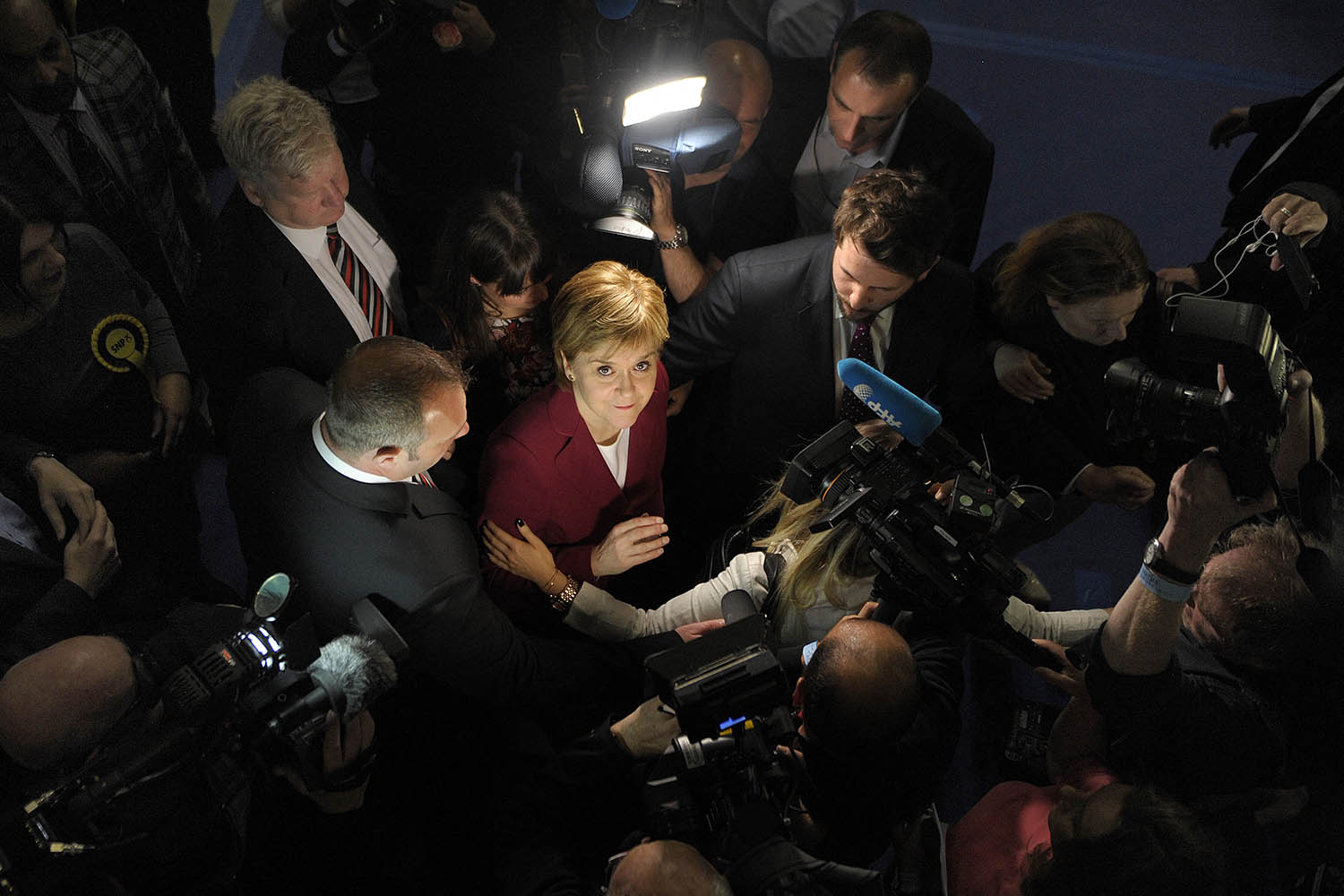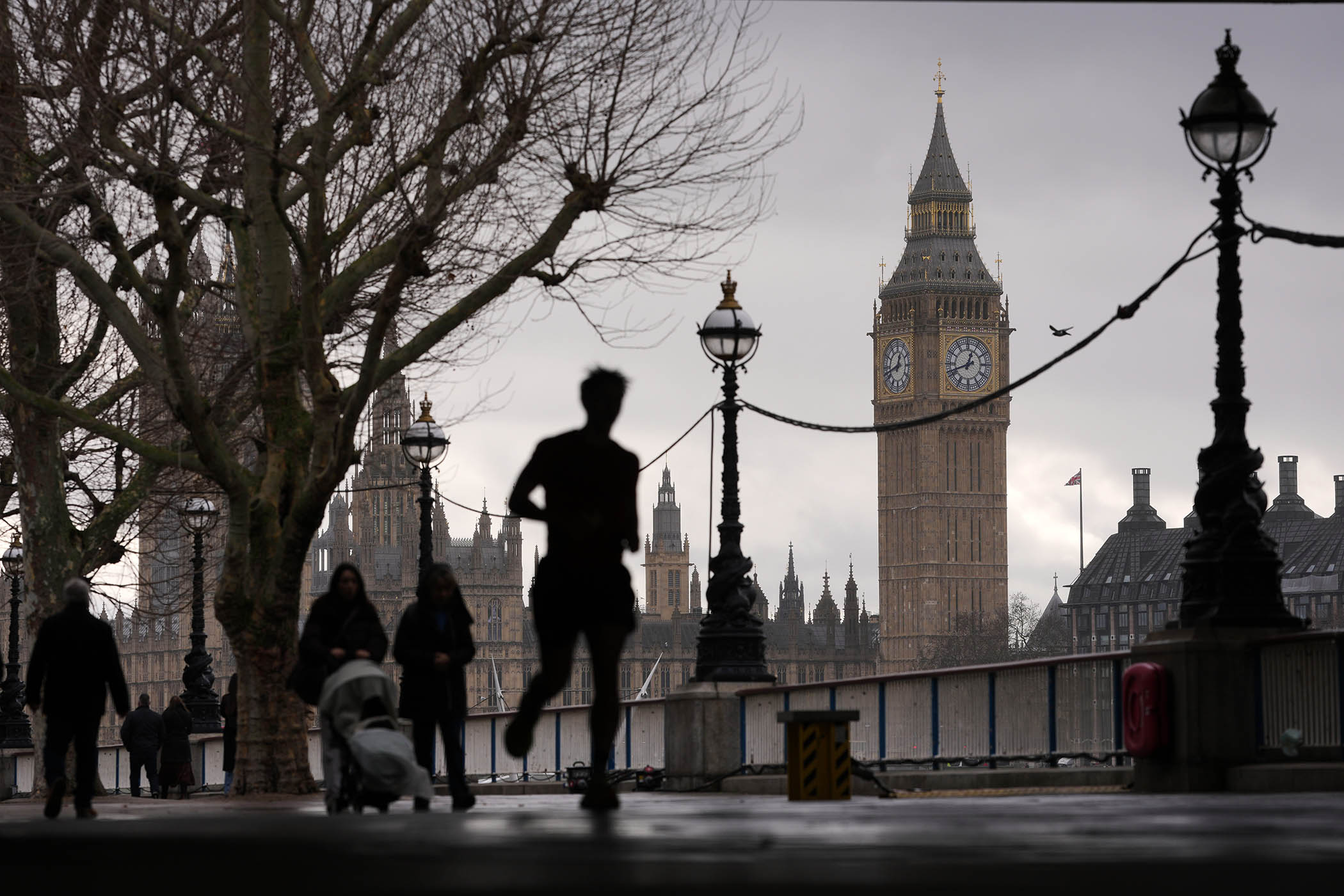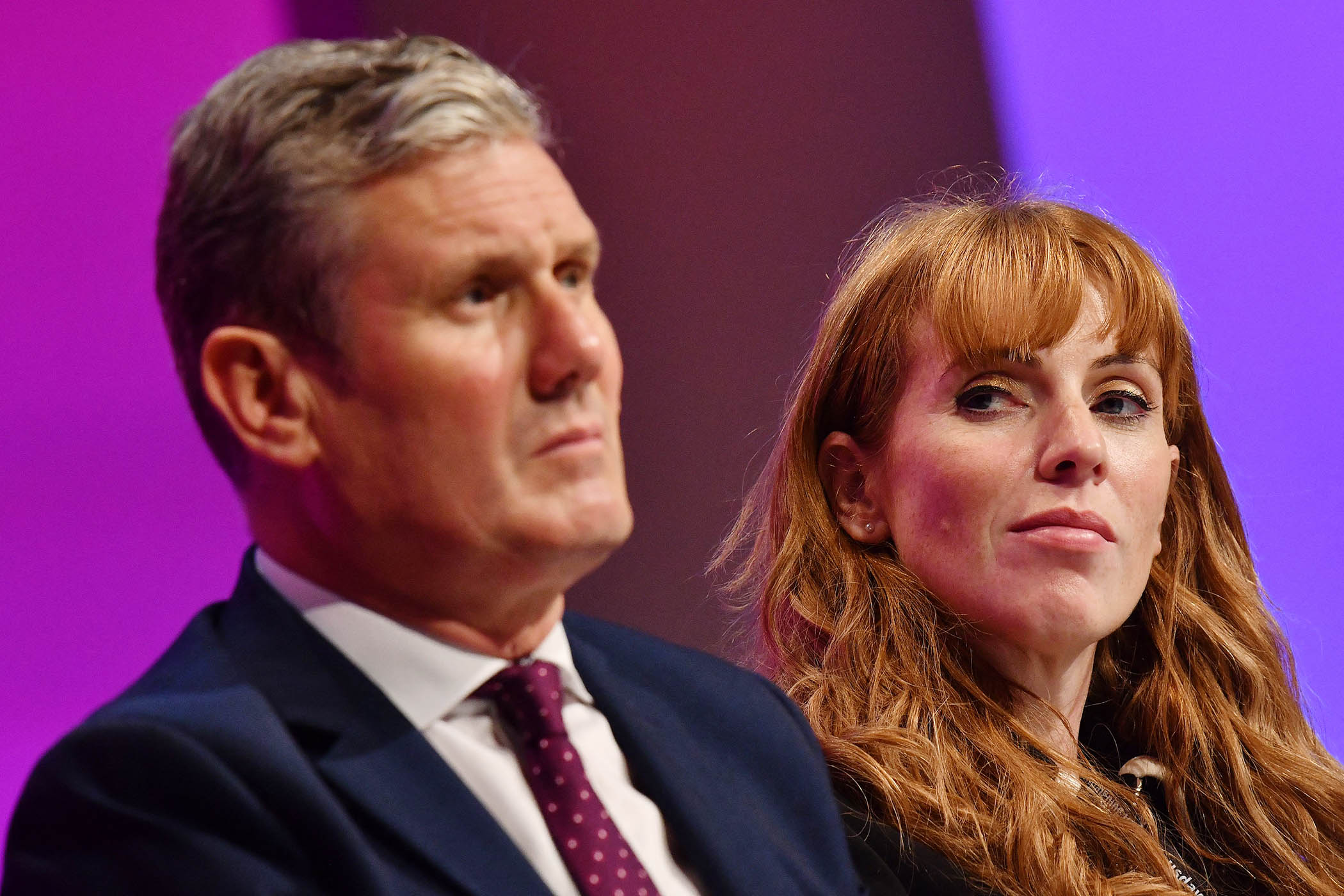This is not a happy season in Scotland. Scottish theatre blazes, the Fringe sparkles. But politically it’s barren. The SNP, still far the strongest party, has forgotten how to tell inspiring stories. The road towards independence seems blocked. Edinburgh University has made a fool of itself by cancelling the thinkers of the Scottish Enlightenment as racists. As often in Scotland, silences are filled by fanatical squabbling – “entangled scrupulosity”, as Gilbert Burnet called it three centuries ago. Into this sullen landscape drops Frankly, Nicola Sturgeon’s assertive but revealing and sometimes very moving account of herself.
Readers outside Scotland must find it hard to believe the venomous and often misogynistic nastiness still daily piled on Sturgeon by almost all the Scottish media. In England, a common reaction to her name – even today – is awe and affection: “How we wished she was our prime minister,” the cry went, “not Boris!” In Scotland (where admirers are still numerous but keep their voices down), her enemies began to launch their jeers about Frankly months before publication. Their hardcore includes ultra Unionists, gender-critical activists (JK Rowling in a silly “Nicola Sturgeon: destroyer of women’s rights” T-shirt), unhinged woman-haters and those – including women – who simply couldn’t stand her “bossiness”.
But this book isn’t merely a self-justification. Neither is it a calm account of Sturgeon’s role in a historical period. Frankly often reads like an old Protestant memoir of a soul’s lifelong struggle against sin and temptation, illustrated with lavish confessions of failure and blameful self-analyses. It’s a genre that paradoxically also allows the pilgrim to boast “unselfishly” about what she or he gets right. And Sturgeon glories in her triumphs and peak popularity, just as she rends her garments over some dreadful misjudgments. In a sense, this book is addressed to herself, to her inner demon: the voice that never ceased to tell her that she wasn’t up to the job, that she was a fraud. All such insecurities express the impostor syndrome that continues to torment many of those in public life.
Sturgeon, born in 1970, came from the west of Scotland working class, a welfare-state world where men still tended to die in their sixties. The drive to be different, to be top, got her bullied at school but propelled her through the University of Glasgow and into law and politics. Why the SNP? Because Labour’s Scottish hegemony had rotted into complacency, while the SNP was swinging left towards social democracy and nuclear disarmament. Scottish independence, for Sturgeon, has always been a means towards a fairer society, never an end in itself.
She became the youngest parliamentary candidate in Britain, yet was unsure of herself: “I developed a very serious and austere persona. It was said that I never smiled. I opted for dark, plain clothes.” And she fell under the influence of Alex Salmond, her leader, mentor and friend until he resigned as party chief and first minister in 2014, after the independence referendum. The book is careful to describe her increasing doubts about him, even at an early encounter in 1991: “Still looking at me intently, he then said that if he couldn’t win the backing of young people like me, he would withdraw his candidacy ... I absolutely knew I was being played, and yet I was also completely taken in.”
They became a formidable double act, Sturgeon as deputy to Salmond when he became first minister in 2007. But after his trial (and acquittal) on sexual harassment charges in 2020, he accused her of a conspiracy to ruin him. Sturgeon utterly denies that. Back in 2018, he had schmoozed her, as first minister, to get the scandal buried. But he came up against her sturdy (and sometimes uncritical) feminism. “It would have been a betrayal of the women concerned and, in some ways, of all women. It would be proof – yet again – that powerful men with powerful connections can get away with anything.”
Ironically, she failed to foresee the hate-storm, led by women, provoked by her attempted grant of full rights to trans women, the Gender Recognition Reform Bill (2022), which led to “a bin-fire of filibustering, fearmongering and insults” at Holyrood and was then vetoed by Westminster.
Frankly often reads like a Protestant memoir of a soul’s struggle against sin and temptation
Frankly often reads like a Protestant memoir of a soul’s struggle against sin and temptation
The independence movement blames her for failing to secure another referendum. But she knew well that there is no constitutional bypass round a Westminster refusal. I think she took the request to the supreme court for form’s sake, to soothe the Scottish public. But she repeats in Frankly that Scottish independence, following a second legal referendum, is inevitable in her lifetime. Prudently, she says little about the incredible melodrama of her arrest in 2023 (on charges of embezzlement, which were dropped) and the impending trial of her ex-husband, Peter Murrell, except to insist that it had nothing to do with her resignation as first minister. (A nasty smell rises from the mystery of why an apparently simple financial investigation has lasted for more than two years of embarrassed silence, as if timed to detonate in the run-up to next year’s Holyrood elections.)
Despite the book’s many self-reproaches, Sturgeon skates around her most damaging weakness. This, surely, was her first-person style of government. It was always “I will do this or that” – never “we”. She seemed to have loyal staffers but no comrades. That authoritarian style served her well during Covid, as her daily briefings – factual but often grimly open about mistakes and dangers – stabilised a bewildered public. It was her greatest achievement, and she’s not modest about it. But in domestic politics, her isolation was a high-wire act bound to end in tears. Many in her party began to find her remote and scary. The “Nippy Sweetie” (her Glasgow nickname) found to her horror that she was inheriting Thatcher’s title of “that woman”.
The liveliest passages in Frankly describe the zigzag drama of her many election battles. Her intimate confessions are touching, sometimes painfully frank: it’s hard to read about her miscarriage, made more agonising by guilt – a feeling that she was “being punished for not wanting the baby badly enough”. Compassion is another reason why Scotland, a small country with a taste for beheading its tall flowers, should forgive this outstanding and defiant leader for her failures. Has she forgiven herself? Frankly suggests that she has.
Newsletters
Choose the newsletters you want to receive
View more
For information about how The Observer protects your data, read our Privacy Policy
Frankly by Nicola Sturgeon is published by Macmillan (£28). Order a copy from The Observer Shop for £23.80. Delivery charges may apply


